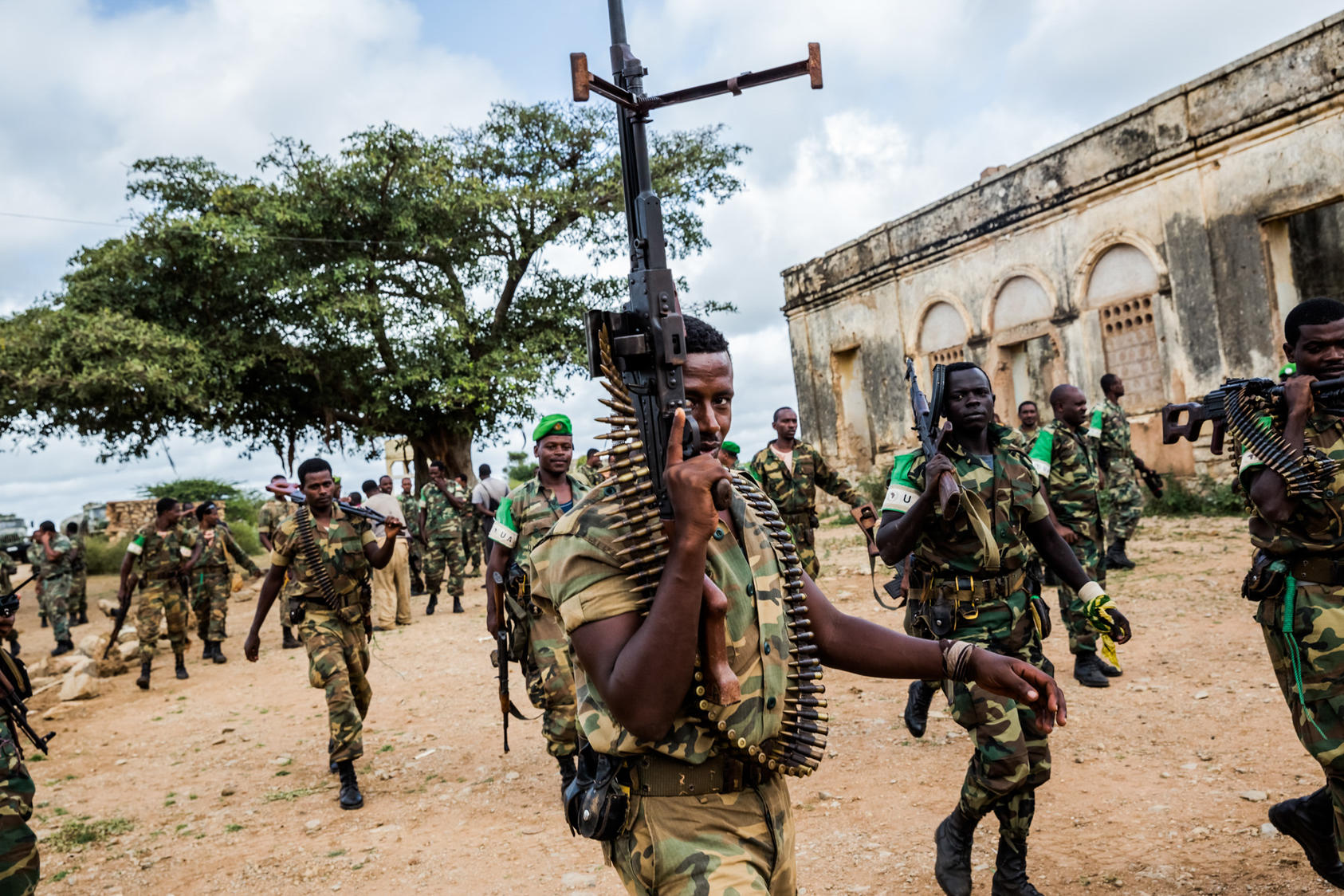Recovery in Somalia: How Do We Sustain Gains Against al-Shabab?
Somalia’s tenuous progress toward stability will only be sustained if the newly elected government steps up delivery of desperately-needed services to its citizens, offering a viable alternative to al-Shabab extremists. Yet six million Somalis are at risk of famine due to drought, and the looming drawdown of the regional peacekeeping force, AMISOM, threatens to derail the country’s fragile transition if the training of Somali forces is not expedited. Former Somali Minister of Planning and International Cooperation Abdirahman Yusuf Ali Aynte (Abdi Aynte) and U.S. Institute of Peace President Nancy Lindborg discussed the challenges and potential solutions in a webcast conversation.
Recovery and development are guided by the New Partnership for Somalia, a compact between donors and the government to encourage reforms and sustained international support for Somalia’s transition from conflict and fragility. The key challenges ahead include establishing efficient and accountable systems for generating and spending revenue, fighting corruption and power sharing.
In this context, Minister Aynte, the country’s ambassador-designate to the U.K., and Ms. Lindborg discussed how Somalia’s central government can seize on the military gains against al-Shabab to extend its reach beyond Mogadishu and begin responding to citizens’ needs in recently liberated areas. They also spoke about how the international community can help the government address the root causes of the insurgency.
Add your voice to the conversation on Twitter with #USIPSomalia.
Speakers
Nancy Lindborg
President, U.S. Institute of Peace
Abdirahman Yusuf Ali Aynte (Abdi Aynte)
Former Minister of Planning and International Cooperation, Government of Somalia; Ambassador Designate to the United Kingdom




